The dark circle in this picture is the planet Mercury. Mercury is in front of the Sun. This picture was taken during a transit in 2003. The transit is almost over and Mercury is near the edge of the Sun.
Click on image for full size
Image courtesy of The Royal Swedish Academy of Sciences.
Transit
A "transit" is the name of a type of astronomical event. A transit
is like a solar eclipse,
when the moon blocks out the Sun. During a transit a planet, not the Moon, moves
between Earth and the Sun. There are only two planets that ever have transits.
Those two are Mercury and Venus.
They are the only planets that orbit closer to the Sun than Earth does.
When a transit happens the planet doesn't cover
the whole Sun like the Moon
does during a total solar eclipse. The planets are so far away that they look
like tiny dots moving across the Sun.
Most of the time when a planet gets between us and the Sun a transit doesn't
happen. Usually Mercury or Venus is a little bit above or below the Sun from
our point of view.
There are about 13 or 14 transits
of Mercury every 100 years. Transits
of Venus are very rare. The last Venus
transit was in 1882! There will be another transit of Venus in June 2004.
In the last few years astronomers have started studying another type of transit.
Some planets orbiting other
stars have been found because of transits. The
planets are much too far away to be seen crossing in front of a star. However,
when the planet is in front of the star the dark planet blocks out a tiny amount
of the star's light. Sometimes astronomers can detect the change and know that
they have found a new planet!
You might also be interested in:
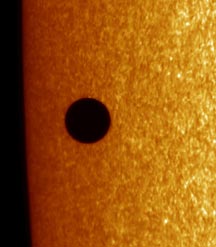
The planet Mercury appeared to cross in front of the Sun on May 7, 2003. Astronomers call the event a transit. A transit is like a solar eclipse. However, a transit occurs when a planet, instead of Earth's
...more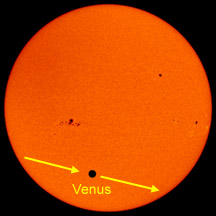
Sometimes the planet Venus gets between Earth and the Sun. Astronomers call that a "transit" of Venus. A transit is a little bit like an eclipse of the Sun, when the Moon gets between Earth and the Sun.
...more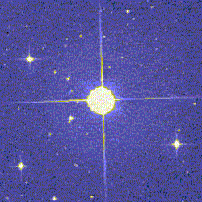
Astronomers have identified another exoplanet, that is, a planet outside our solar system. This makes a total of 102 exoplanets that have so far been found by astronomers! The astronomers that identified
...more
Astronomers are excited about a rare event that will happen in early June 2004. There will be a transit of the planet Venus on June 8, 2004. "Transit" is a word used by astronomers when a planet moves
...more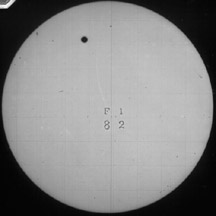
Sometimes Venus passes between Earth and the Sun. This event is called a transit of Venus. Transits of Venus don't happen very often. There is a pattern in the time between transits of Venus. The pattern
...more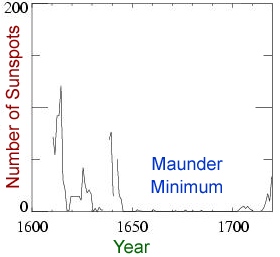
You may not know that humans have observed sunspots for a very long time. These records have been around so long in fact, that we can link sunspot number with solar activity. Large sunspots can sometimes
...more
The planet Mercury will cross in front of the Sun on Wednesday, November 8, 2006. Astronomers call the event a transit. A transit is like a solar eclipse. However, a transit occurs when a planet, instead
...more
A "transit" is the name of a type of astronomical event. A transit is like a solar eclipse, when the moon blocks out the Sun. During a transit a planet, not the Moon, moves between Earth and the Sun. There
...more











